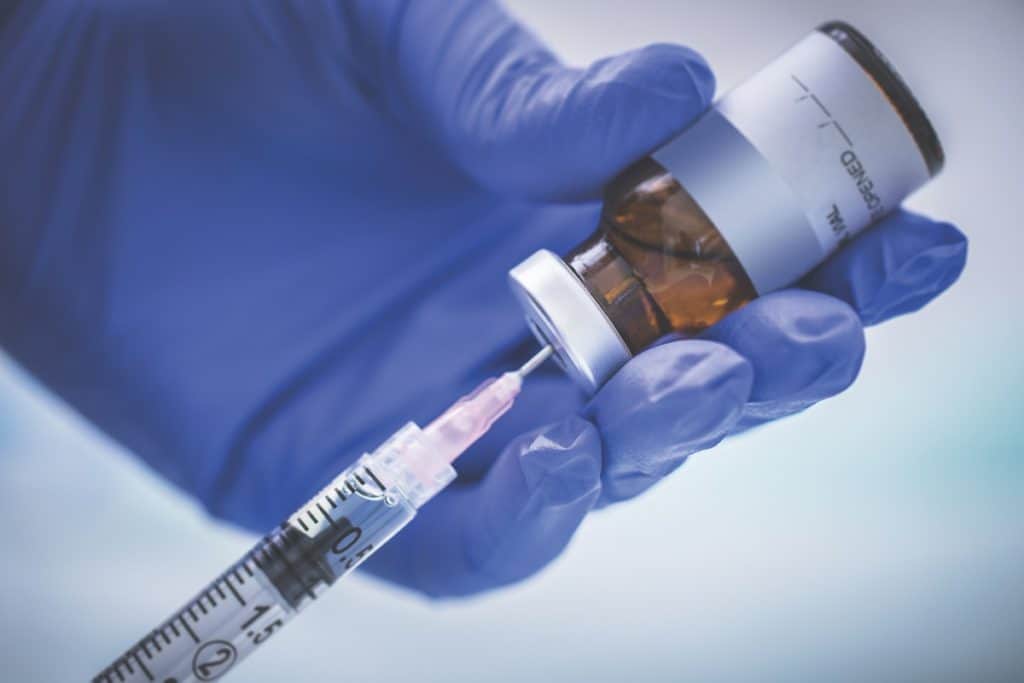
By Giulia Pugliese
In September, CEOs from Pfizer, Moderna, and seven other major pharmaceutical companies pledged to “Make clear our on-going commitment to developing and testing potential vaccines for COVID-19 in accordance with high ethical standards and sound scientific principles.”
This pledge came amid growing public distrust in a potential COVID-19 vaccine and concerns about threats to the Food and Drug Administration’s independence as a regulatory agency. According to one public opinion poll, 50% of Americans indicated an unwillingness to get an FDA-approved COVID-19 vaccine when one becomes available. These numbers pose a problem for public health officials: low vaccination rates will render the vaccine less effective. When asked whether they would agree to get the approved vaccine at no cost to them, only 53% of Democrats and 49% of Republicans said yes.
This is not a Democratic or Republican problem, it’s an American problem. Our nation’s pandemic response has been plagued by missteps as cases and deaths from COVID-19 continue to grow. We simply cannot afford another misstep that would feed public perceptions that the Food and Drug Administration would be making politically motivated decisions. Partisan agendas have no place in the lab. Americans need assurance that the FDA will continue to operate as an independent agency, collect and analyze data according to existing protocols and standards, and make regulatory decisions free from political pressure.
It is understandable that Americans might distrust the FDA and a future vaccine. In a Morning Consult poll from August 2020, 50% of American adults indicated that they believed that President Trump influenced FDA decisions. In rare bipartisan agreement, 54% of liberals and 52% of conservatives said they believed that Trump influenced the agency’s decision-making process.
Even though both liberals and conservatives perceived Trump’s influence on FDA decisions, in an August virtual event FDA Chief Dr. Stephen Hahn guaranteed that all vaccine and therapeutics approvals for COVID-19 will be “based on good science and sound data.” He added, “Nothing else will be used to guide our decisions.” In the weeks that followed, the Trump administration proposed “pre-licensure” for the COVID-19 vaccine, but Hahn denied the suggestion to alter FDA standards.
Concern about external political pressure is not unwarranted. In early September, Health and Human Services Secretary Alex Azar released a memo that barred the FDA and other national health agencies from signing any new rules regarding foods, medicines and other products, including vaccines. Azar wrote in this memo that such power “is reserved to the Secretary.” This policy change would undermine FDA officials as they would not get to have the final say. In addition, in October, Azar reportedly expressed his desire to remove Hahn from his position after Hahn insisted that a COVID-19 vaccine meet the FDA’s safety standards. Azar’s actions prompted Hahn to reiterate his earlier commitment to preserving the agency’s autonomy.
As we start getting more accustomed to wearing masks, logging onto Zoom, and practicing social distancing, no one has forgotten the lives we once lived. As the months go by and we transition into colder weather, we will only become more isolated: physically, mentally, and emotionally. Memories of pre-pandemic life seem more and more unattainable.
A COVID-19 vaccine will not bring the pandemic to an end but will be a crucial step toward returning to life as we knew it. If we can preserve public trust in the FDA, then we can build public confidence in the vaccine. Let’s focus on giving scientists and FDA officials the time and resources they need to manufacture and approve a safe and effective vaccine.
Giulia Pugliese is a resident of Rockville Centre, New York and an undergraduate student at Providence College majoring in Health Policy and Management. He has family living in Westchester County who are readers of Westchester Rising.





